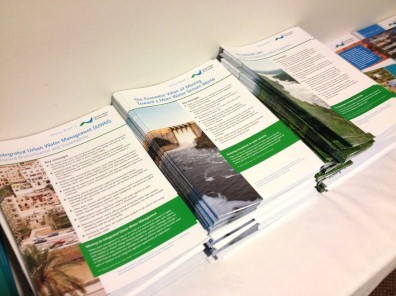Water management is one of the most serious challenges facing urban areas today. This is a key argument in the policy brief entitled “Integrated Urban Water Management (IUWM): Toward Diversification and Sustainability”.
The world’s population has reached 7 billion and especially big cities are growing rapidly. More people now live in cities than in rural areas. This calls for a close look at how water is managed in the affected areas.
This policy brief outlines how IUWM can provide a framework for planning, designing, and managing urban water systems. The brief also encourages policy makers to consider the water cycle as a whole when cities are being developed.
Cooperation Across Borders
International law provides rules that govern the use of transboundary water resources and facilitate cooperation. Despite calls for increasing cooperation to manage shared water resources, facilitating transboundary water cooperation in a world of sovereign nations continues to be one of the most serious challenges facing national governments and international organisations.
The policy brief “International Law: Facilitating Transboundary Water Cooperation” explains the importance of cooperation between states in order to resolve water problems and share limited resources.
It describes where the critical challenges lie and what international laws and instruments are available to solve conflicts between states that have competing claims.
Where Does the Money Go?
According to the policy brief “The Economic Value of Moving Toward a More Water Secure World”, people’s intuition about the importance of water is so strong that plans to increase water security are rarely subjected to rigorous economic analysis.
But economic analysis of investments in water security is essential for designing appropriately scaled, cost-effective projects as well as avoiding unnecessary costs of delay and unwise investment.
This policy brief explains why it is important to understand the economic value of water security compared to other priorities. It also illustrates how the value of water is determined and describes the different perspectives of the states and the households.
All the policy briefs are based on GWP background papers and publications by the network’s Technical Committee, which is a group of internationally recognised water experts. The material is for free and can be downloaded or ordered in printed format via gwp@gwp.org.

